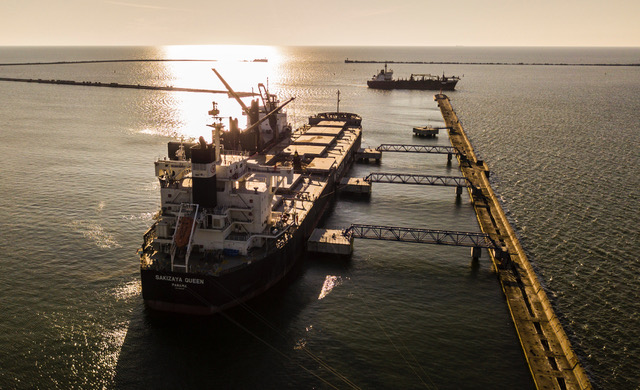The insufficient amount of discussions between representatives of ports, municipalities and businesses about Latvian Transport Ministry’s proposed port management reform in the past two years has caused many different complications. Ports are forced to fight for their rights and prevent a situation when their development is completely halted, making attraction of new freights and investors almost impossible. Considering the lack of clarity for the future development of ports, attraction of investments and change of established management principles, investors and port businessmen have taken a pause and are waiting to see how the situation unfolds.
One of the best examples is the biggest stevedore company working at Riga Freeport – SIA Riga Universal Terminal. This company processes more than 3 million tonnes of freights every year. Its CEO Jānis Kasalis has noted that until a clear plan of regulations that does not worsen the current situation has been developed for Latvia’s ports (Riga Freeport in the case of RUT), all major investments for infrastructure development will remain on hold. RUT is a subsidiary of Singapore-based Portek. This means strategic foreign investors are rather worried about this situation.
Municipalities are also in the dark about upcoming developments, because the reform will deny them the option to develop city infrastructure.
The 2020 freight volume data is less than promising. Because of Transport Ministry’s proposed reform investors are largely confused on the future development of the management model, so they invest less in Latvian ports. Partners also tend to choose alternative options to move their freights. This results in a «low blow» to all of Latvia’s largest ports. The freight volume decline is enormous. For example, in Rig freight volumes have declined 27.6% and in Ventspils – 36.9%. Liepaja, on the other hand, has managed to demonstrate more resilience than Latvia’s largest ports. Although the volume of coals, which are considered harmful to the environment, has declined 74.1%, it still shows an increase when compared to other types of freights. One of the reasons for the port’s stable operations and development, also letting go of environmentally harmful freights, is Liepaja Special Economic Zone’s tight cooperation with port businessmen, municipalities and the state. The standing representation of port businessmen in the board (1/3 of the board) ensures experience-based sustainable strategy.
The presence of a quality strategy creates a beneficial environment for attraction of investments, growth and development.
Exclusion of businessmen from the board would reduce circulation of information, which currently allows the port to actively make improvements to its operations. Liepaja is a great example of sustainable and successful port operations in Latvia, which is something mentioned by businessmen in Riga and Ventspils.
On 23 January 2019 Prime Minister Krišjānis Kariņš’s government issued a declaration on the Cabinet of Ministers intended actions. The document mentioned that changes are needed for the transit industry, specifically port management. New Conservative Party’s (JKP) political setting was evaluating and reforming management models of large ports. One priority solution was making them into state capital associations. Considering JKP’s representative Tālis Linkaits became Latvia’s transport minister, he was the one who took on the duty to implement the reform.
It would seem the government is pushing the interests under the leadership of the transport minister. Only opinions of legal consultants were considered in the development of the management model. They were the ones who prepared the report on the change of port management model. This report does not mention any economic or social justifications, the setting seems more «a reform for the sake of reform», but the report is used as a flag from Transport Ministry’s fight for the proposed reforms. The proposed reform has yet to receive coordination from the state secretaries meeting or businessmen active at all of Latvia’s largest ports.
The opinions of municipalities, businessmen and investors are not considered important. Dialogues are organized in mediation without any real purpose and no objections are taken seriously.
There have to be corrections, recommendations and development. This is the only way Latvian ports can recover leadership in Baltic region’s transit sector. Linkaits’ and Transport Ministry’s proposed reforms are too cardinal (for example, Liepaja municipality will lose 2/3 of the city’s total owned territory), too rushed and poorly developed. They have neither a clear roadmap to attract new investments or ways to improve port competitiveness. It is necessary to follow modern trends and develop ports, their infrastructure so that it is possible to move forward with the European Union towards the climate neutrality goal in 2050.
Businessmen stand in favour of reaching a singular goal and one vision for the development of Latvia’s ports though shared discussions.
Once the goal has been defined changes to the established system may be introduced in a simpler manner and more efficiently without losing even more. The way the reform project is being pushed by Transport Ministry is unacceptable.
Baltic Association – Transport and Logistics board chairman Ivars Landmanis, Liepaja SEZ stevedore company Terrabalt CEO Āris Ozoliņš, SIA Riga Universal Terminal CEO Jānis Kasalis





